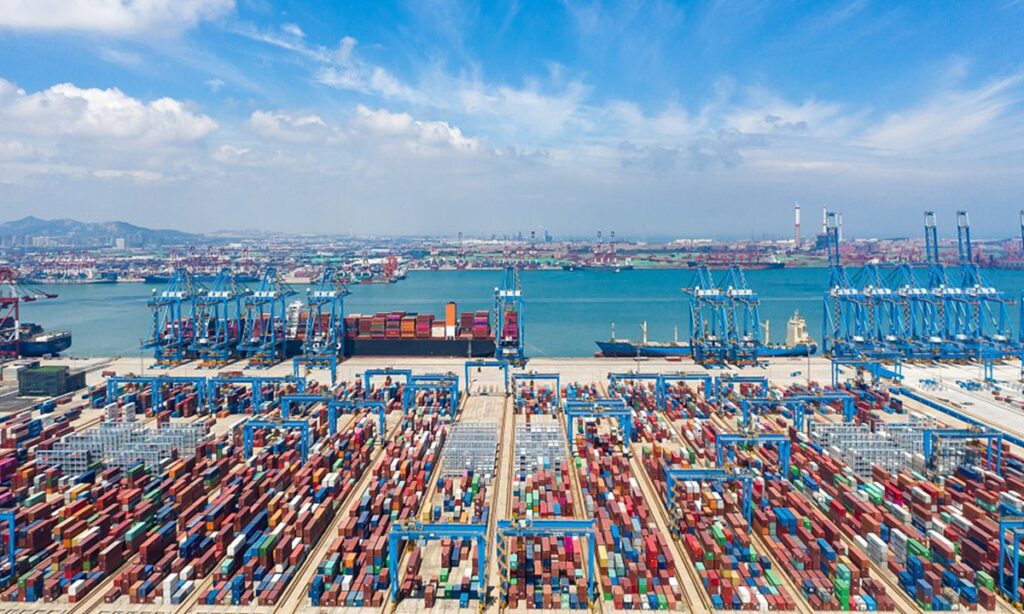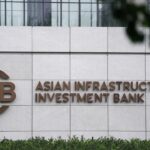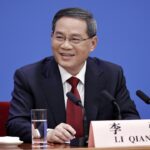China’s three major economic indexes saw stable growth in May, with industrial output rising 3.5 percent year-on-year and social retail sales expanding 12.7 percent year-on-year, which observers said showed that a moderate recovery was underway despite multiple downward pressures ranging from a complex global geopolitical situation, weakening demand to the spillover effect of US monetary policy shockwaves.
While the missing of certain readings from market forecasts have prompted a dimmer view and even speculation of the Chinese economy “losing steam,” observers have defied the hype, stressing that the engine of the world’s second largest economy is “running well on track” and the health of its economy arguably outperforms most other major economies – some of which are either grappling with runaway inflation or are on the brink of an economic deceleration.
With headwinds persisting throughout the year, it is believed that more stimulus measures are in the pipeline, adding to a slew of recent cuts on China’s key interest rates, which could further ease the lopsidedness in recovery and rev up the recovery streak, analysts said.
They expected China’s GDP to grow above 6 percent in the second quarter, and display an “N-shape” growth pattern for the whole year, landing well above the annual target of 5 percent.
Fixed-asset investment in the first five months grew 4 percent year-on-year to 18.88 trillion yuan ($ 2.64 trillion), which slowed 0.7 percentage points from the January-April period, according to data released by the National Bureau of Statistics (NBS) on Thursday.
In May, social retails, a key gauge of China’s consumption, jumped 12.7 percent year-on-year to 3.78 trillion yuan, slowing 5.7 percentage points from April. Meanwhile, the 3.5-percent industrial output expansion in May also slowed from a 5.6 percent year-on-year growth in April.
“This group of data constitutes a moderate economic recovery in May though there is a palpable sense of softness. It is also normal, taking into account the growing challenges at home and abroad,” Tian Yun, a veteran macro economy observer, told the Global Times.
Observers added that the economic indexes in May were filled with green shoots, underscoring a significant improvement in economic quality as well as the resilience and vigor of the Chinese economy.
For example, breaking down data on industrial value-added, the equipment manufacturing industry saw values rise by 8 percent in May, while revenue from the catering industry also skyrocketed 35.1 percent the same month.
Downward pressure
Cao Heping, an economist at Peking University, told the Global Times on Thursday that achieving two-digit growth in retail sales is “super high,” and is difficult for any country of a large size to achieve.
Consumption has become the No. 1 driver of China’s economic growth this year, with final consumption accounting for 66.6 percent of economic growth, statistical data showed.
The pace at which fixed-asset investment and industrial output rebounded is also in line with China’s high-quality development pattern and shows that China did not invest in projects and major projects in areas of overcapacity, observers said, which offers more fresh evidence debunking what some media have described as recovery “losing momentum.”
At the press briefing on Thursday, NBS spokesperson Fu Linghui outlined a number of factors that weighed on the economy’s operations.
“It is important to acknowledge the sluggish recovery of the global economy and the manifestation of policy tightening by advanced economies, among other uncertainties. At home, the foundation for economic recovery is not solid enough. Demand in the domestic market remain insufficient, consumer prices are inching lower, and market entities have also encountered difficulties,” Fu said.
However, Fu voiced strong confidence in the country’s economic prospects, which he said is supported by a list of promising factors, including built-up solid material and technological foundation, a broad market space, and enhanced innovation capabilities.
“China has the conditions, the capacity, and the confidence to surmount difficulties, and press ahead with sustained economic recovery,” Fu stressed.
Tian opined that in global terms, the health of the Chinese economy could be “one of the best.”
“If we examine other major advanced economies, the US and European economies could be heading for a recession. Japan’s inflation rate has also jumped to the highest in decades. Rising geopolitical tensions and a grim global economic outlook have also undercut their ability to further come up with tools to shore up the economy,” Tian explained.
More stimulus on the way
China’s central bank on Thursday cut its key one-year medium-term lending facility (MLF) loans to some financial institutions by 10 basis points — from 2.75 percent to 2.65 percent – to inject more liquidity into the banking system. It is the first such cut in 10 months, following a similar cut in the seven-day reverse repurchase rate earlier this week.
Analysts said that those cuts in key interest rates could be a precursor to more stimulus measures to drive the economy, amid the central government’s “sober evaluation” of the economic situation.
“China has afoot policy room for adjustment. While the US has almost hit its debt ceiling, China’s financial policy is still in the initial stages of ‘firing the starting gun’,” Tian said, while noting that it is also important that China maintain its strategic focus, leaving more tools at its disposal.
Zhou Maohua, an economist with China Everbright Bank, told the Global Times on Thursday that the central bank may continue to release low-cost, long-term funds through reserve requirement ratio cuts and other structural tools to enhance banks’ ability and willingness to support the real economy.
More targeted policies to accommodate investment demand are also expected, Cao added.
As the effects of more supportive policies kick in, Tian predicted a GDP growth of more than 6 percent in the second quarter.
Fu said that the second-quarter economic growth will show an evident acceleration compared with the first quarter, and consequential growth in the third and fourth quarters will return to normal levels.
“We estimate the full-year GDP to exhibit an N-shaped recovery, meaning that growth in the second quarter and fourth quarter will peak… This is the combined result of the base effect and dollar cycle,” Tian predicted.
China’s economy grew by 4.5 percent in the first quarter, and the country has set an annual growth target of around 5 percent this year.
In June, the World Bank said in its latest global economic outlook report that, led by a rebound in consumer demand, China’s GDP is expected to grow by 5.6 percent in 2023. Investment in infrastructure and manufacturing is expected to remain resilient.
Observers said that riding the recovery momentum, China will continue to make an unparalleled contribution to the global economy this year. Its share of the incremental global economic volume could near 40 percent in 2023, the largest among major economies.
(Global Times)




